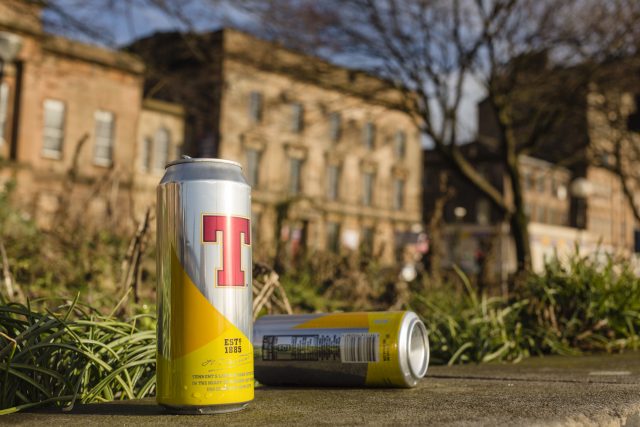This website uses cookies so that we can provide you with the best user experience possible. Cookie information is stored in your browser and performs functions such as recognising you when you return to our website and helping our team to understand which sections of the website you find most interesting and useful.
C&C Group H1 operating profits down following software problems
In a trading update, Tennent’s owner C&C Group said it expects its first-half operating profit to fall to between €29m and €31m, compared to €54.9m a year earlier, due in part to problems implementing new software across its business in Great Britain.

C&C Group plc has published a pre-close trading statement today (19 September) for the six-month period from 1 March to 31 August 2023, ahead of announcing its H1 results on Thursday 26 October 2023.
The Ireland-based group, which also owns Tennent’s and Magners, said it expects its first-half operating profit to be in the range of €29-31m, compared to €54.9m a year earlier.
The estimate includes the significant majority of a one-off profit impact associated with a disruption to the implementation of an Enterprise Resource Planning (ERP) system in the Group’s GB distribution business.
C&C Group said at the time that it had “encountered significant challenges” with the implementation of an Enterprise Resource Planning (ERP) system upgrade in the Matthew Clark and Bibendum business unit in Great Britain.
C&C Group acquired both Matthew Clark and Bibendum from troubled wine retailer Conviviality in 2018.
The company said in May: “C&C currently expects a one-off impact of c.€25 million associated with ERP system disruption in FY2024, reflecting the cost associated with restoring service levels and lost revenue.”
In the six months to 31 August 2023, C&C expects to deliver net revenue of c.€870m, a drop of c.1% on a constant-currency basis from a year earlier.
C&C’s trading update also detailed the group’s leverage at the end of H1, defined as net debt to earnings before exceptional items, finance income, finance expense, tax, depreciation, amortisation and share of equity accounted investments profit after tax. Net debt comprises borrowings (net of issue costs), lease liabilities capitalised less cash.
The group said leverage at the end of H1 was expected to be 2.1x on a post IFRS16 basis and 1.6x on a pre-IFRS 16 basis — “marginally higher than our target range, due to the ERP system implementation issues”, the company said.
However, it affirmed its expectations that leverage would be within C&C’s “stated range” by the close of FY2024.
The beer and cider maker described trading for own brands in Ireland and Scotland as “encouraging”, with net sales revenue for branded business up 6% for H1.
Good weather in June helped boost trading, but poorer weather in July and August, combined with cost-of-living pressures, hampered results in the latter part of this period, the company said.
Patrick McMahon, former group CFO, took over from Forde as the chief executive officer in May. He commented: “Set against a difficult market backdrop, we are pleased with the strength of the performance of our branded businesses in Ireland and Scotland in the period. We are particularly pleased with the progress we have made in restoring customer service levels following the ERP system implementation issues in our GB distribution business within our planned timeframe. Delivering outstanding service, winning back customers, continued business simplification and improved operating efficiency remain our top priorities and focus for the second half.”
C&C’s process to recruit a new CFO is ongoing, the company said, in conjunction with an independent executive search firm, with plans for an update in “due course”.
Related news
Stone Brewing to cease all international exports

